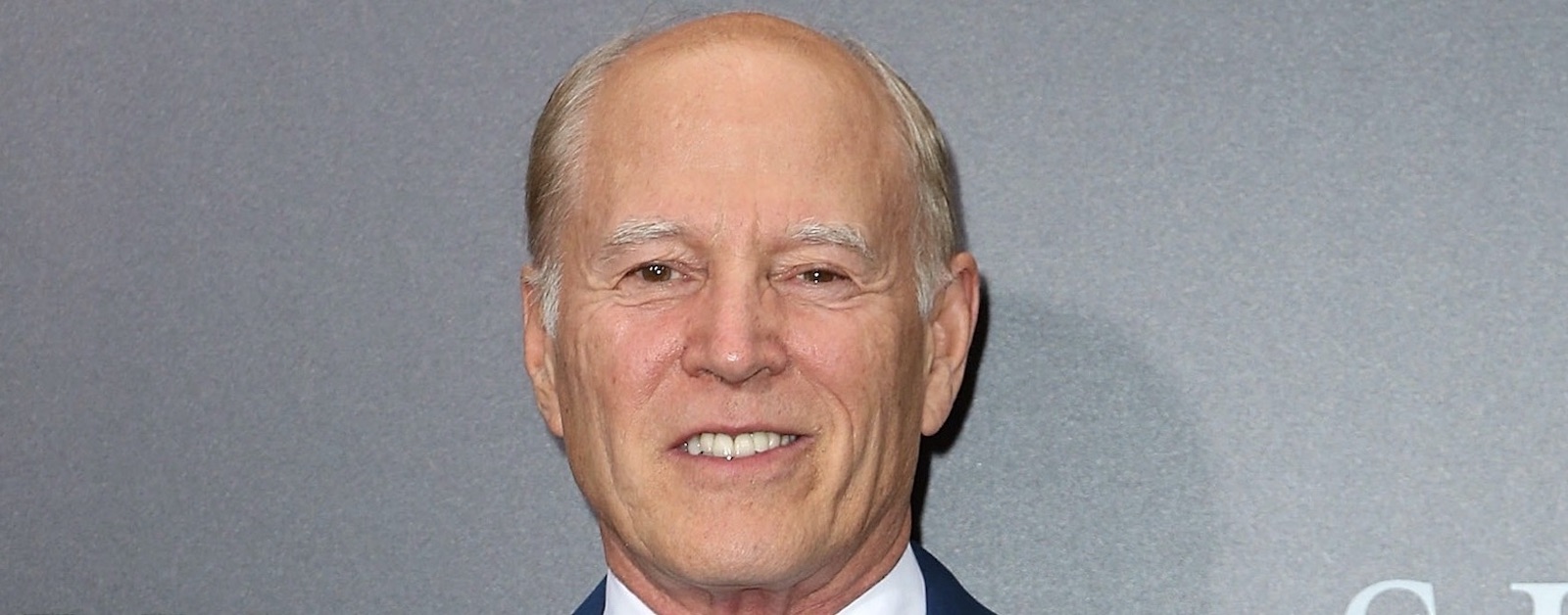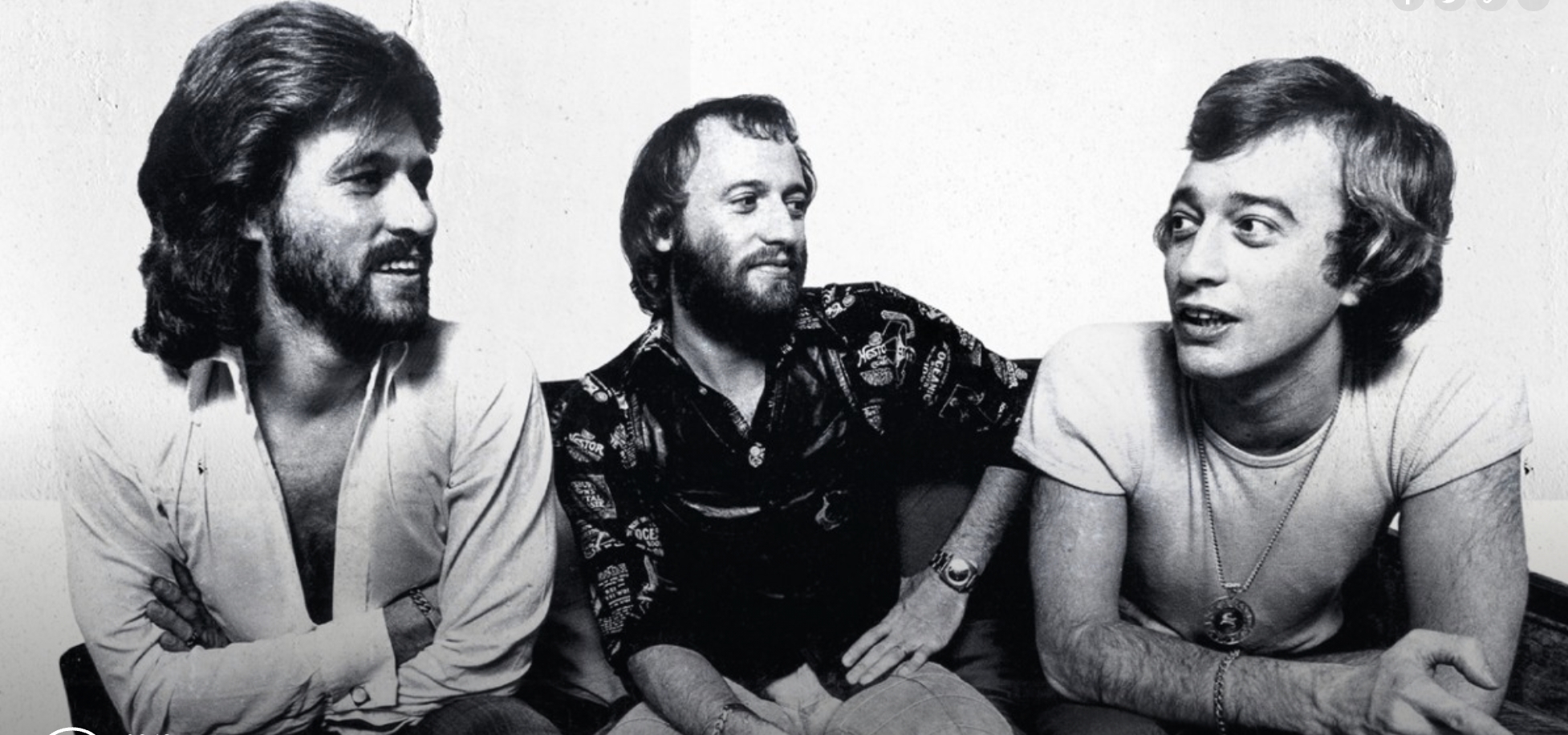
It’s kind of hard to believe Frank Marshall, who has been involved in so many canon blockbusters over the last 40 years – from the Indiana Jones movies to the Back to the Future movies to the Jurassic Park movies – that he himself hasn’t directed a movie in 14 years, not since 2006’s Eight Below. (He says a big reason for this is his duties with the production company that he runs with his wife, Kathleen Kennedy, have increased since she took over Lucasfilm.) But now Marshall is back with his new documentary that will premiere on HBO this weekend, The Bee Gees: How Can You Mend a Broken Heart.
It’s pretty obvious Marshall has an empathetic soft spot for The Bee Gees, and even though they have been given tremendous accolades, it actually does feel like they still don’t get quite their due. (It’s difficult to think of a musical artist that was as big as The Bee Gees and in the late ’70s, with the then-number one album of all time, then just a couple of years after, as Marshall points out in the film, the racial and anti-gay disco backlash, they couldn’t even get a song on the radio.) Also, it’s a tragic story, as Barry Gibb is the only brother still alive, having lost his two fellow bandmates over the last couple of decades, and his youngest brother, Andy, back in 1988.
Steven Spielberg is no longer directing the often-delayed Indiana Jones 5, but Marshall is still producing the now-James Mangold-directed sequel and Marshall gives us an update on what’s going on and actually, at least when you hear the tone of his voice, sounded pretty optimistic that they are finally in a good place. Marshall also looks back on his first directed film, Arachnophobia (which might have a remake soon but, as with everything these days, who knows if and when) and shares some stories about how spiders just don’t react well to direction.
So, it’s hard to find good light for a video call when two people living in the same apartment have an interview at the same time.
I know the problem. I had to make my bed this morning because I have a bed in my office that I use for naps in between my Zoom calls. But then I looked and went, oh, it’s in the background.
I wouldn’t judge you if your bed was unmade. Ours is currently unmade, too.
[Laughs] Okay.
This is the first time I’m talking to you about a movie where the word “wind” is not in the title.
[Laughs] Yeah. I’m glad that we got The Other Side of the Wind done. But I’m ready to move on.
Before that I spoke to you about The Wind Rises.
Listen. Two movies I’m very proud of. So I’m glad you’re doing the third.
And this is the first movie you’ve directed in 14 years. That’s surprising.
Yeah. It’s the first feature. That’s true. It seems like yesterday I was out there in the cold with the dogs [in Eight Below]. But when Kathy [Kennedy] took over Lucasfilm, it left me alone with The Kennedy/Marshall Company. So I really focused on producing and running the company. We branched out in the documentaries and live theatre. I’ve been enjoying that. This one just came along. All of my choices as a director have been stories that I’ve been passionate about telling. So I was very happy to do this one.
Did you actually miss directing? Or, as you said, with her at Lucasfilm, were you just too busy with the other stuff to have time to miss it?
It’s such a focus thing for me when I’m directing something, in a theatrical feature. Not a documentary. Because the documentary, directing it is different than directing Eight Below. I didn’t really miss it. But it’s more creative when you’re directing. It’s your baby. This was a nice blend between the two.
I think every human being who has ever paid attention to The Bee Gees has one of two shocking Bee Gees moments: When their longtime fans heard their dance music. And then when people who know their dance music first hear their earlier music.
Yeah! I think that’s what I wanted to re-introduce people to. I think people felt that they were lightweight. And they’re really heavyweight. The scope of their music, they wrote over a thousand songs. I forget the numbers on how many were number one. But they’ve had an incredible impact on musical history. It’s really deep. Their gifts and their creativity and everything was amazing. I really wanted to dig into that. When you say to people, oh, yeah, “Islands in the Stream,” that was written by the Bee Gees. They go, “What?”
Speaking of that, I just heard “Heartbreaker” by Dionne Warwick. For the first time I noticed the backing vocals are them. I’d never noticed that before.
They have touched the collective unconscious, I guess you would call it, around the world for five decades.

How did Barry Gibb seem to you? In the film he comes off a bit forlorn, but also he’s talking about his brothers who he misses.
Yeah, I think that’s normal. He misses his brothers. So there was a little sadness there. But he also wants to celebrate them. He was very generous and supportive and enthusiastic. He welcomed us into his home. Again, it was a little bittersweet to be talking to him. But he was gracious and humble. I loved him reflecting back, because I don’t think he ever did. We all have our standard answers to those questions that we get asked a million times, about our careers and things. The memories came pouring out. It was great. I think that he liked exploring the journey that he had been on and what was important. He’s the older brother, as am I. I come from a musical family. So we had a lot to talk about.
When you mentioned questions you’re asked a million times, I’m guessing the movie you’re referencing is The Money Pit.
[Laughs] No.
A movie I do love by the way. I’m not making fun of The Money Pit.
Yes. Thank you. The one they do all ask me about is The Goonies. I go, “What?”
Andy Gibb is a tragic figure and could have his own documentary. How did you factor how much time to give him here, who wasn’t technically a Bee Gee.
It was a challenge. The biggest challenge, obviously, is that Barry is the last man standing. I wanted to give each of the brothers their own voice. How we weave that into the story, it took a long time, but I have a great team. We spent a lot of time trying to figure out how to get Andy in there and give him his moments. Again, a very sad story. But he was about to become a member of the band, which I found fascinating. We just had to find the moment to make it feel organic. That took a lot of work.
I had a hard time coming up with a modern comparison to what happened to The Bee Gees between the late ’70s and early ’80s. I can’t think of anyone who was that popular, and then just a couple of years later couldn’t even get on the radio.
I think that Chris Martin, he explained it. He said they were on the front wave of that global super pop stardom, he calls it, I think. Or the first wave of it. Nobody understood the backlash then. “We just sold a billion albums, why doesn’t anybody like us anymore?”
I watched Staying Alive recently. It’s very weird what Stallone did with The Bee Gees music in that movie…
I can’t say I know that movie.
It’s the sequel to Saturday Night Fever. That’s Sylvester Stallone directed. He relegated their music to the background and gave Frank Stallone all the good parts.
There you go. They weren’t taken seriously. The other thing that was amazing to me, though, was how they were always adapting. They adapted. It’s partly, I think, because they were brothers. And even if they were split up, they had to see each other at Christmas and talk about it. But they weren’t disco. They didn’t discover or invent disco. They came into it. The backlash of having to have FBI escorts and bomb threats and all that, that was crazy. But that was really, I think, part of the social change that was going on. That’s why I was really happy to get the interview with the usher at Comiskey Park [for the infamous Disco Demolition Night].
He was really great. And how he said a lot of the records people brought weren’t even disco, they were just records from Black artists.
Yeah. To really put a personal perspective on what was happening back then and how he saw it. It wasn’t The Bee Gees’ fault. They just got caught up in it all. They found another way. That’s when they went to the songwriting and then, 10 years later, it was okay to come back together again. I don’t know if you’ve ever watched the One Night Only concert. It’s incredible. It was in Vegas. They’re at the height of their powers. They stand up there for two and a half hours and do every song you love. It’s amazing.
I’m curious why you didn’t include the Sgt. Pepper movie. Because I am fascinated by that film.
Just no time. I think there’s a whole movie just in that.
A bit before the pandemic, it was announced that a remake Arachnophobia is happening with James Wan. I’m curious what you think of that. I’m actually surprised that it hasn’t happened earlier.
I’m flattered. They came and asked me and I said, yeah, sure. For me, it was the start of my directing career, so it has a special place. I’m very proud of that movie. It seems to hold up even 30 years later! I think what’s going to be interesting is that we were forced into using real spiders.
They probably won’t do that this time.
I think that could be risky. Because a lot of the movie was created by those moments you couldn’t predict. I would let the spiders do what they wanted.
Did you have much to say in what they wanted to do? I feel like they just do what they want to do.
Yeah, I said they need to come out of the popcorn bowl, but we didn’t know where they would come out. They didn’t take direction well, let’s put it that way.
With James Mangold taking over directing Indiana Jones 5, you’re still involved, right? I think you are?
Yeah.
Is that movie cursed? Because every time it seems like it’s about ready to get going, something happens. And now we have this happen where the world changed.
I think we’re on the right track now, Mike.
Okay. Why is that?
I think everybody’s together. Jim is off working on the script and we have a release date. Hopefully, everything will be safe to start next summer. It looks good!
Honestly, I could talk about The Bee Gees for another hour. I love their music. I’m glad this film exists.
I’m really proud of this one and happy with it. It was a passion project. I’m happy it came out so well and people are really embracing it. So thank you.
You can contact Mike Ryan directly on Twitter.
